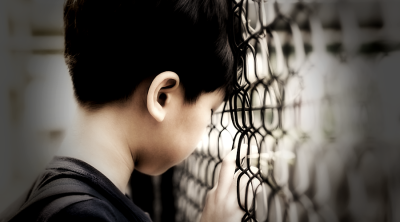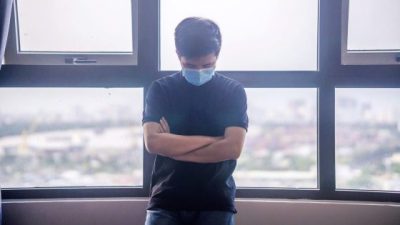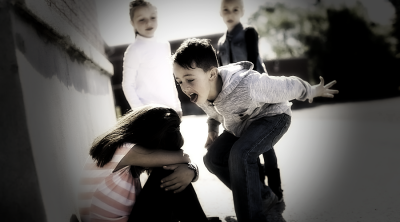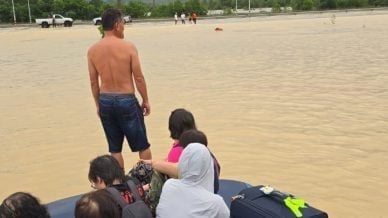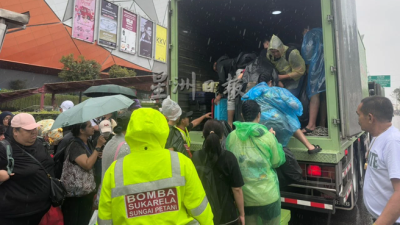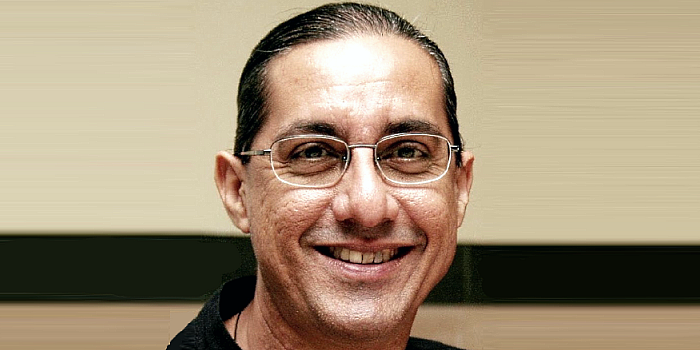
I am writing this to the extensive aunty and uncle network that flourishes via WhatsApp and Telegram groups. I am sure all of you are aware of the Omicron variant but may have a limited picture of what to expect. Allow me to share with you and your networks what we can expect with this variant in Malaysia.
1. We can expect to see an Omicron wave in Malaysia from January to March 2022.
Our current Omicron detected cases in the country may appear low (2-3% of genome tests) but we must realise that our genome testing is very limited (0.25% of cases) compared to countries of our level of development (global GISAID database). If you look carefully at our data, you will see a steep rise in the number of infections in imported cases. Most of these are probably the Omicron variant. It is very likely, as in many countries including Singapore, that Omicron is beginning to spread locally in the community.
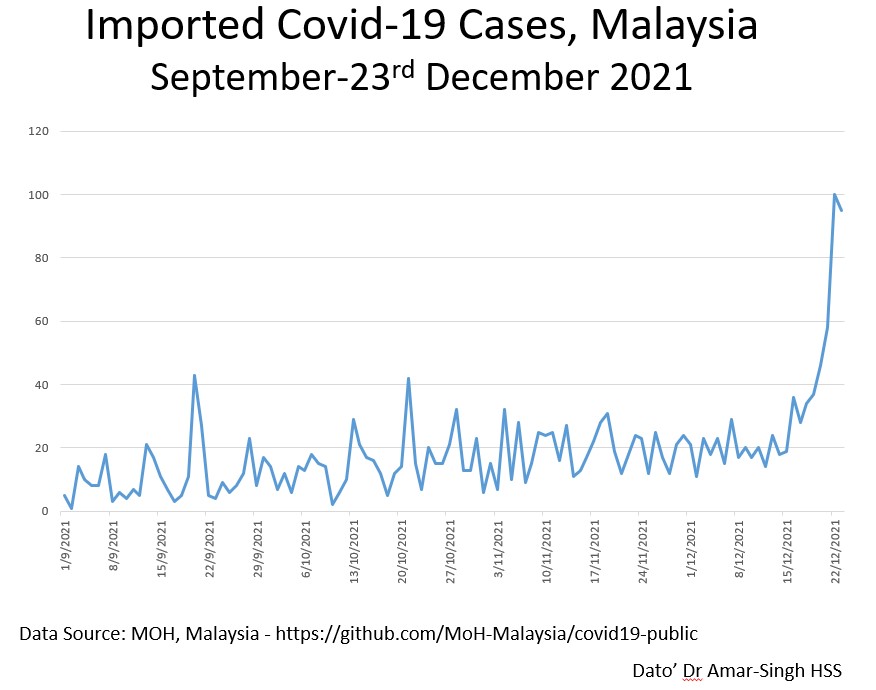 As we know from good data, Omicron spreads very fast and has a rapid doubling time of 1.5-2.5 days (UK data). This means that small numbers can rapidly escalate in a short time. Note that the Institute for Health Metrics and Evaluation (IHME) has already predicted a sharp rise of Covid-19 cases in Malaysia due to Omicron with a peak in January 2022.
As we know from good data, Omicron spreads very fast and has a rapid doubling time of 1.5-2.5 days (UK data). This means that small numbers can rapidly escalate in a short time. Note that the Institute for Health Metrics and Evaluation (IHME) has already predicted a sharp rise of Covid-19 cases in Malaysia due to Omicron with a peak in January 2022.
Looking at the experience in other countries, especially South Africa and the United Kingdom, we in Malaysia can expect a sharp rise in cases in the next 1-3 months but we hope this will be short lived.
2. How will Omicron Impact Our Health?
The key points we know so far from data is that Omicron causes breakthrough infections more easily for those who are vaccinated and appears to be less severe but we have no idea of the Long Covid risk.
The latest technical briefing from Public Health England (23 December 2021) has data to offer better estimates of vaccine effectiveness (VE) against getting infected. The summary is that:
a. Two doses of Pfizer or AstraZeneca vaccines do not protect against the Omicron variant 3-4 months after vaccination (unlike with Delta).
b. For those who received Pfizer vaccination, a booster with another Pfizer vaccine dose pushed up protection initially and this dropped to about 45% after 10 weeks.
c. For those who received AstraZeneca vaccination, a booster with a Pfizer vaccine dose pushed up protection initially and this dropped to about 35% after 10 weeks.
d. Boosting Pfizer or AstraZeneca vaccine recipients with a Moderna vaccine produced better results.
This data suggests that we can get infected despite vaccination and that boosters have a moderate benefit to reduce this. Vaccines will have a large benefit in reducing hospitalization.
Note that VE against hospitalization was not shown, which is of more value and importance to us. South African data suggested that hospitalization was reduced significantly with Omicron compared to Delta but we must realize that their population has lower vaccination rates and higher natural immunity from extensive Covid-19 spread. A detailed analysis of UK data by the Imperial College suggests a 40-45% reduction in hospitalization risk when compared to the Delta variant.
This data suggests that Omicron is less severe but bear in mind that, being so much more infective, means that it still can put many people in hospital.
What about the Sinovac vaccine and Omicron? There is no real-world data, unlike Pfizer/AstraZeneca, and we have to rely on laboratory antibody studies which may not reflect what will happen. Studies from the University of Hong Kong showed that two doses of Sinovac produced insufficient antibodies against Omicron. This was also the case for a booster Sinovac. The University of Hong Kong team recommended that Sinovac vaccine recipients receive a booster dose of Pfizer vaccine.
In summary then, Omicron will infect many of us, some of us will be hospitalized, and certain vaccine boosters offer protection. We have no idea at present of the Omicron Long Covid risk but experts in the United States do not expect it “to be any different than previous variants”.
3. What are the Concerns for Our Health System and Our Society?
The concerns are that this may be another wave that stresses our health system. Our staff are beyond exhaustion and ICU beds are limited. Another wave will increase bed usage, further strains our staff and limit healthcare for other medical conditions.
We are also concerned for our children, especially those aged 0-11 years. They are unprotected and may be difficult to shield from the very infectious Omicron wave. Their schooling may be disrupted again. We need to seriously consider using the Pfizer vaccine for teenagers/adults in children aged 5-11 years at a smaller dose as well as improve classroom ventilation.
4. What Can We Do to Improve Our Protection (Reduce Our Risk)?
None of us are looking for a return to any form of a lock-down as it will further harm those who are poor, the economy and the mental health of all. In medicine we often talk about a return to basics’ and that is what everyone needs to do. We know that this virus is spread by an airborne mechanism. We need to tighten all our well-established prevention measures which include:
a. Masks – improve the quality of fit and filtration of your masks
Masks work, but with Omicron, when we are in poorer ventilated situations indoors, we need to invest in FFP2 equivalent or KF94 masks. This is especially true for all those who work in a frontline occupation (including food and shopping outlets). Some countries are making them available for those over 60 years or make them required for use in public places indoors.
b. Ventilation – improve your indoor workplace ventilation
Malaysians have yet to en masse adopt good ventilation practices in their work-places. Perhaps Omicron might just be the impetus to get this critical measure implemented urgently.
c. Reduce your contact time with others and limit travel
Notice how both the Malaysian and Singaporean government have paused the quarantine-free border entry. Continue to be vigilant and avoid unnecessary gatherings or crowds and travel. Continue working from home if that option is open to you. Having a Christmas or New Year party may not be the best idea, even if held outdoors. Testing is an option but remember that with Omicron’s rapid doubling time, you need to test almost daily to be of any value in prevention (not to mention testing depends on sample quality).
d. Get your boosters
Vaccines do appear less effective but boosters will help to some extent. Remember that Delta is also still circulating, and may outlive the Omicron wave.
After two full years we are all tired and weary of this long-drawn pandemic. We need to work to encourage each other to go the distance and to maintain vigilance. As always, it is the people supporting the people that will make the difference.
(Dato’ Dr Amar-Singh HSS is Consultant Pediatrician.)
ADVERTISEMENT
ADVERTISEMENT









